Yesterday, we had an article about lemon trees and fertilizer.
When my wife and I went on the Trans-Siberian Railway we had a side tour to a very remote farming community in Western Siberia. The community was very traditional in the old ways of dressing and house design and decoration and had a thriving vegetable garden and fruit orchard. We were in a group of 40+ people and the locals were overjoyed that we might deposit stuff into their toilet for use on their gardens. They very actively encouraged us to use the facilities as much as possible.
I had a friend, now deceased, who was a well known market gardener at Bacchus Marsh, a well known fertile valley west of Melbourne renowned for its vegetable and fruit production. he told me he had a deal with the local night-man to empty his cans in a field when he was ploughing. The more the merrier so they say.
One of the most productive farms in Victoria is the Werribee Farm run by the Board of Works to discharge Melbourne's treated sewage and re-use it as irrigation water.
It is strange how an article about lemon trees can cast one's mind back to a train trip through Russia. Particularly in these troubled times in Ukraine and Russia.
I prefer to think back on more pleasant times and think back to Russia, with much love.
My wife and I are very fortunate to have been able to travel extensively and frequently. This trip on the Trans-Siberian Railway was the longest and one of the stand-out experiences of our lives. These days, with travel having been so severely limited, it is good to be able to share memories of past journeys and past experiences.
I have been prompted to put this article together as a result of the interest stimulated by the post “From Ghost Town to Booming Sea Port” on 20th October. The area covered is so large and well documented that I do not propose to recite another travelogue but rather relate some of our personal experiences and impressions. For more detailed reading on the Golden Eagle train we travelled on the following You Tube videos can do more justice than I can put together in the space of this resume.
The first is a shorter snapshot and the second much more comprehensive.
.
In 2006 two other blokes I worked with, and myself, decided to go on the Trans-Siberian Railway with our wives. On the advice of our travel agent we booked ourselves in with the Golden Eagle Express Company which operates luxury private train tours in various countries. This is an English company which does things in a superb manner of old world luxury and comfort as only the Poms know how to do. The expense was eye watering but worth every cent. Real value for money.

We flew to Moscow and were booked into the Metropol Hotel. This hotel was constructed by the Czars and is the last word in luxury, comfort and service. It is located just around the corner from Red Square, across the street from the Bolshoi Theatre and walking distance from the Kremlin. It’s most lingering feature was that each morning breakfast was served in the magnificent dining room with a lady playing the harp.
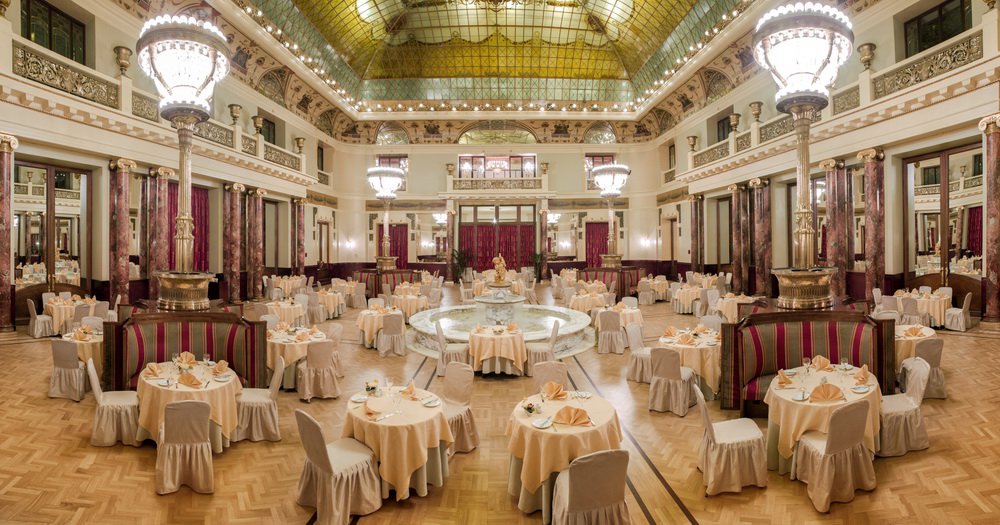
We spent four days in Moscow before boarding the train. Our impression of Muscovites was not good. Apart from the obvious language difficulty people were loathe to help out with directions so we did not venture very far from the hotel through fear of getting lost. One of our planned highlights was to see a performance at the Bolshoi Theatre. Unfortunately it was three years into a five year restoration project. To cover this gap, a new theatre was built alongside and was called the New Bolshoi Theatre. We did get to see a performance of Swan Lake one night as a second prize. The hotel also arranged a driver to take and collect us from The Great Moscow Circus at its home base. Just fantastic stuff.
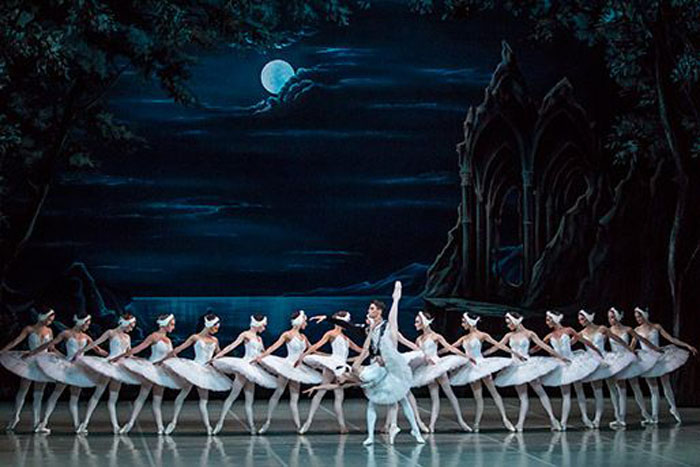
The other thing that struck us about Moscow was the obvious huge gulf between rich and poor. There were many obviously well to do people in the vicinity of this hotel but once you got beyond that the average man in the street was very much a second class citizen poorly dressed and living in dilapidated multi story buildings. There was a saying that anybody with a degree of affluence either worked for the government or was a criminal. This feature of Russian society lingered throughout the entire trip.
On the night before departure all travellers on the Golden Eagle were treated to a champagne party where we got our instructions on when and where we had to be and met the staff. The next day we were on the train and settled in to what would be our home for the next 15 days. The train was very luxurious, our cabin spacious and we wanted for nothing at any time. We had our own personal steward who, like the rest of the crew, spoke perfect English.
Dinner was served in one of two dining cars. Vodka was free with meals but had to be paid for at the bar. The trick was to order several vodkas at the end of the meal and take them to the lounge car. The lounge car was a great place to socialise. The train was full, about 200 guests in all and from all parts of the globe. Australia, USA, England, South Africa and Israel. There was a grand piano with a pianist and pretty soon it all ended up in a sing song. Basically, the system was that the train travelled at night arriving at a destination next morning while breakfast was being served.
Our first stop was the city of Kazan, the capital city of Kazakhstan. It has a large Islamic population and is divided into two distinct areas. During the Stalin era it was decreed that no public money was to be spent in the Islamic quarter and it was allowed to go to rot. In more recent times Islamic countries have contributed to its welfare and we toured one of the most beautiful and exquisite buildings I have ever been into. It was a mosque built and paid for by the government of Morocco. It had been opened only a short time before we were there. The colouring, the fine fret work and the general design is breathtaking in its beauty. The other side of the dividing road is an obviously prosperous city but my understanding was that the refusal to spend public on the Islamic quarter was still in force at the time of our visit.
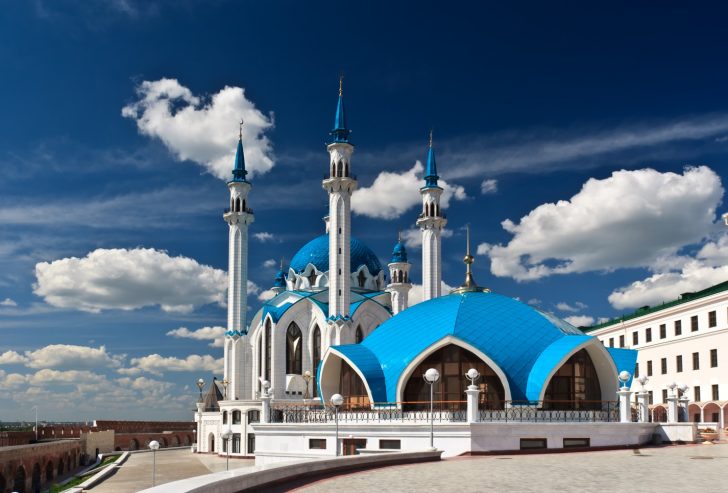
Our next stop was the city of Yekaterinburg, the site of the murder of Czar Nicholas II and his family following the 1917 revolution. Soon after breakfast a stern announcement came over the PA system. All passports MUST be handed to your car captain immediately. We all wondered if WW3 had broken out. A little while later we arrived at the border of Europe and Asia. Not really a border because it is all within Russia but it is marked as a place of significance. We all assembled and received a stern lecture from a large man in a magnificent uniform about the glories of peace between Europe and Asia. Then he said “There is one more formality which I have to perform.” Wait for it! “Break out the champagne!!!” It was all a big joke. We had a big champagne party beside the railway track and got our passports back with a commemorative stamp to mark the occasion.
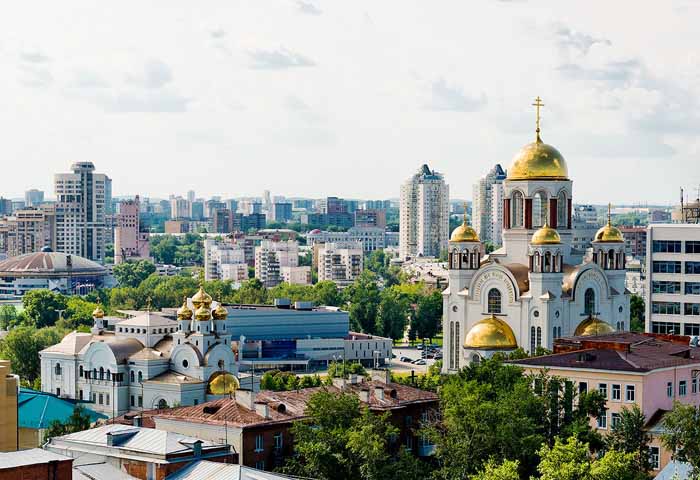
Our next destination was Novosibirsk, the hometown of our car captain whose name I forget and cannot pronounce anyway but she was absolutely outstanding. The key to any organised tour is the quality of the tour leader and ours was second to none. Novosibirsk was the home town of several famous Russian writers and composers. Our captain organised an afternoon at the former home of Rimsky-Korsakov where we were treated to an afternoon of music like you never heard before.
Russia has such a long line of famous leading people of the performing arts, music, writing, ballet etc, one wonders why there is such a gulf of trust between them and the Western world. They are clearly European yet there is always tension of some kind between them and the larger European powers. The answer has to be the influence of Communism. We spent some time at Novosibirsk. To me, the most interesting place was the railway museum where they have an example of every piece of rolling stock ever used on the Russian railway system. In the course of our journey we were hauled by steam, electric and diesel locomotives.
English subtitles
One of the unknown features of this trip is that the Golden Eagle is a private train and has to take its place on the tracks as secondary to commercial traffic. The train can be ordered to stop or go at the discretion of the controller. Where there are dual tracks there is a constant flow of goods traffic hauling mainly oil and timber from Siberia towards Moscow. The further east on gets and the further from major cities more single track sections are encountered so the Golden Eagle has to take refuge at sidings to allow priority traffic to pass. One such spot was a siding soon after we left Novosibirsk. My mate Jeff and my wife decided to take a walk to look at the shops. I stayed behind. Next thing the train was ordered to move NOW. I yelled out to Jeff to get back on board and they made it as the train began to move. Another couple were not so lucky and had to spend US$125 on a taxi to chase the train and get back on board. This lack of dual track is a serious impediment to Russian security because there is no other means of land transport from East to West and many ports are ice-bound for more than 6 months. There is no road across Russia.
This part of the trip took us through endless silver birch forests. Among the trees was an also endless collection of hamlets and humpies populated by extremely poor people. The climate was freezing and how they existed I do not know. There were thousands of people living like this. Rubbish was strewn all over.
Our next stop is Irkutsk, the capital of East Siberia. We are now deep into Siberia and the foothills of the Steppes. The temperature is freezing.After Irkutsk we proceeded to the highlight of the entire trip; Lake Baikal, the biggest freshwater lake in the world and containing 20% of the world’s fresh water. The train route was different many years ago and the branch line to the lake is for tourist traffic only. In past years during winter the lake was frozen solid to such a depth that to shorten the route, railway tracks were laid on the ice and trains went direct to the port instead of the longer route around the shore. As we moved to a picnic ground passengers were allowed to ride on the outside of the diesel locomotive. We arrived at a nice grassy picnic ground beside the lake.

The train staff erected trestle tables and chairs with tablecloths and all the cooking equipment needed to turn on a feast and feast they did. Marvellous display of efficiency and teamwork. The lake at the time was frozen with large lumps of ice standing upright. We were told that this was caused by waves onthe lake during high wind freezing in position. It was quite uncanny really. After a magnificent afternoon we progressed towards the Mongolian border where we had to go through a lengthy passport and visa inspection. En route to the capital of Ulaan Baatar we took a bus detour to a community of renegade Russian Orthodox Church people who were exiled to Siberia as punishment. They still live according to their ancient beliefs. At Ulaan Baatar we visited one of the biggest Buddhist monasteries in the world. During the Stalin era, Stalin tried to exterminate all religion. Buddhist monks were shot on sight and monasteries burned to the ground. When Germany invaded the USSR Stalin wanted the Cossacks to join his army. They said first you must stop killing our monks and burning our temples, which he did and the Cossacks joined the Russian Army serving with great distinction.

On the return journey back to Russia we had to go through the passport and visa routine again. One American couple who had visited Belarus before joining the train had used their re-entry visa and were not allowed back in. They had to go back to Ulaan Baatar and catch a plane back to the USA.
Once back in Russia we took a very long side trip by bus to a remote part of the Steppe where the herdsmen live and tend their goats, sheep and yacks. They live in round tent like houses clad in goat and yak skins or felt. They are called yurts. We passed many of these houses and at each one there was a young boy standing naked at the door. It was explained to us that this is a standard toughening up process to fit the boys for their later life when they have to tend the herds in the depths of the freezing winters. We had dinner in a very big building made of the same materials and it was surprisingly warm inside even though there was ice and snow on the ground outside.

Finally we made it to Vladivostok where I witnessed one f the most distressing sights of the whole trip. We entered the railway yards just after breakfast. When the train stopped many workers came running up to the kitchen car with empty pannikins and tins. The kitchen staff proceeded to ladle out the slops from breakfast into these tins which the workers hungrily devoured such was their hunger.
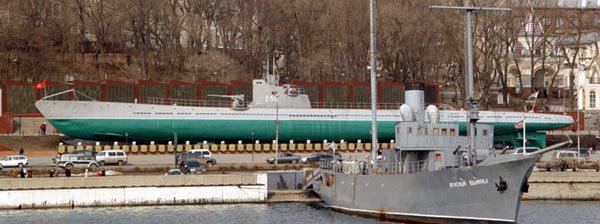
Soviet S-56 Submarine on display in Vladivostok
Vladivostok was not a friendly place, especially towards the Americans in our party. They insisted that America took no part in WW2 which was a war only between Germany and Russia. After a bit of a look around we boarded a plane to Seoul in South Korea,where we spent three days, then on to Hong Kong and home.
A marvellous journey and wonderful experience.
I still wonder why Russia and the West cannot get along. We are natural allies, more so than Russia and China.
There are some differences between our experience and that depicted in the linked video. That is entirely due to the time difference. The video was made in 2020. Long distance train travel is not just the best way to travel. It is the only way to travel IMHO.
Finally, apologies to Sean Connery for stealing his punch line.
BLOG COMMENTS POWERED BY DISQUS
















































